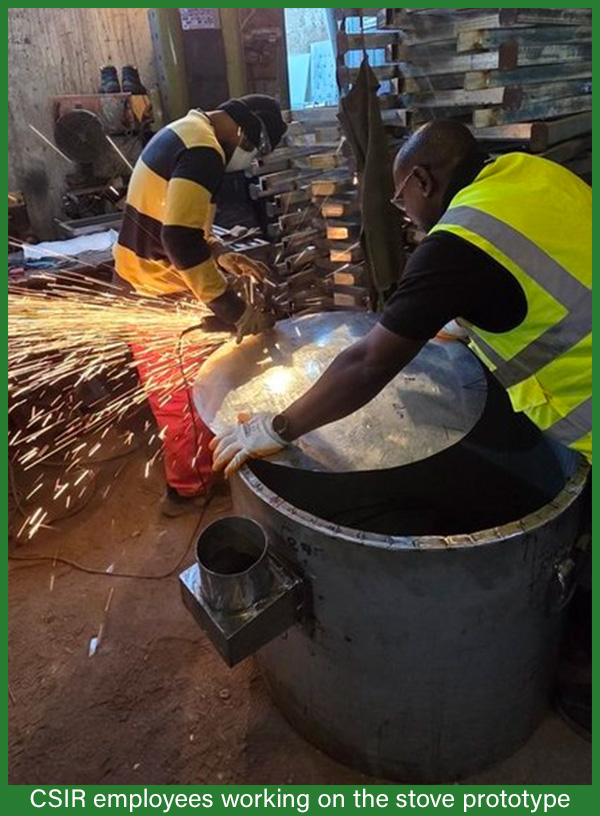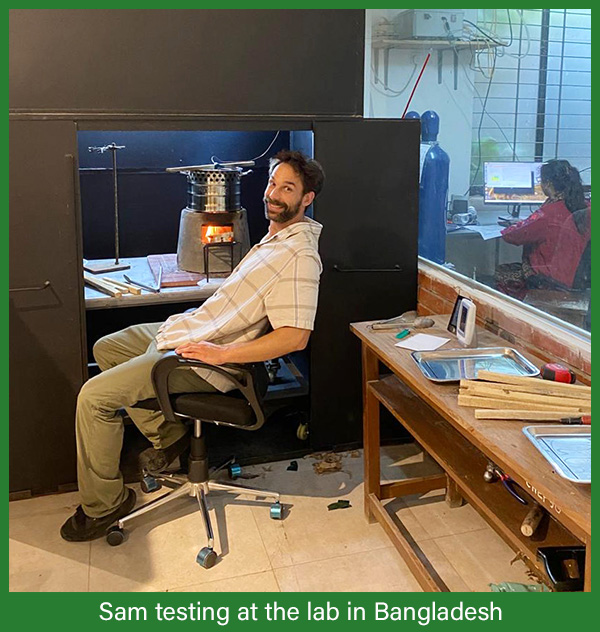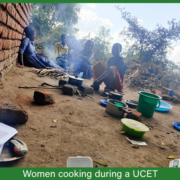What’s Cooking at Aprovecho
Capacity Building with CSIR
Over the past 3 years, thanks to three grants from Fire Capital, Aprovecho has been working with CSIR (Council for Scientific and Industrial Research) in Ghana to expand their lab capacity. We have focused on teaching stove design principles through co-developing a stove retrofit for boarding schools in Ghana.
During the recent in-person workshop, Jaden visited the lab to help with the building of the prototype and plan for its installation at a local school. This prototype will go over an existing stove at the school, increasing thermal efficiency and reducing indoor emissions. With user, manufacturer, and lab result feedback, CSIR will finalize their design and give stoves to ten schools for a larger impact study.

The LEMS in Bangladesh
Sam went to Bangladesh to update their lab and provide training. The Bangladesh University of Engineering Technology in Dhaka now has a lab that can test cookstoves according to ISO 19867 standards. This provides a useful development tool for the area as well as way to teach the next generation about cookstove development. Sam observed that while urban and peri-urban areas had access to gas and electricity, households couldn’t always afford it, highlighting the need for clean biomass stoves even in areas with access to alternative fuels.
Sam also visited Life Green Energy, a stove manufacturer focused on forced draft stoves. Together, they developed a local Jet-Flame prototype aimed at saving fuel and reducing emissions. The prototype was able to burn green wood while other brick stoves could not. More development is planned to improve the product.

Baseline Efficiency Paper Published
We were recently published in Environmental Science & Technology for our paper on the baseline thermal efficiency of wood and charcoal stoves: Quantifying the Efficiency and Fuel Consumption of Cooking with
Traditional Wood and Charcoal Stoves in Malawi, Ghana, and Kenya.
Aprovecho and Oregon State University paired with SunFire (Malawi), KIRDI (Kenya), and CSIR (Ghana) to conduct a total of 720 thermal efficiency tests on traditional wood and charcoal stoves. The goal was to compare the baseline efficiency of stoves with UNFCCC (United Nations Framework Convention on Climate Change) default efficiency, which had recently changed.
We developed a new test protocol, the UCET (Uncontrolled Cooking Efficiency Test), which measures thermal efficiency on any meal cooked. We found that the average thermal efficiency was between the new and old UNFCCC defaults. It was also found that firepower, pot/pan size, and cooking method are strongly correlated with efficiency.





Leave a Reply
Want to join the discussion?Feel free to contribute!